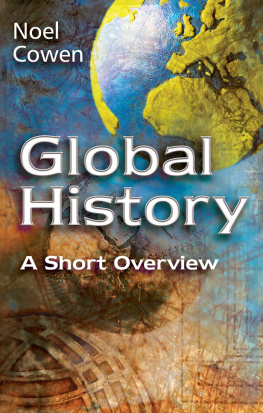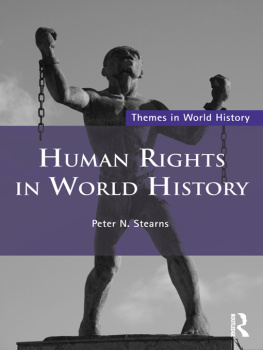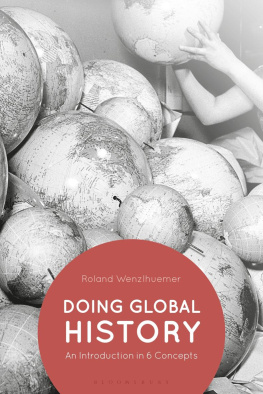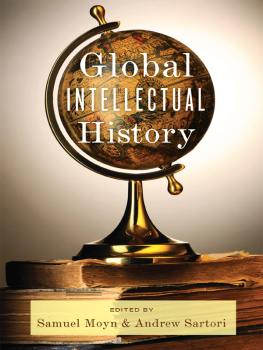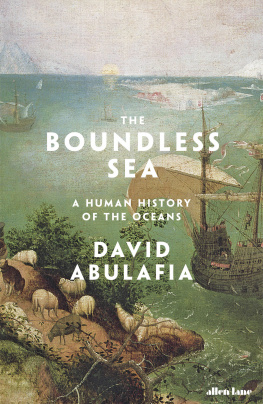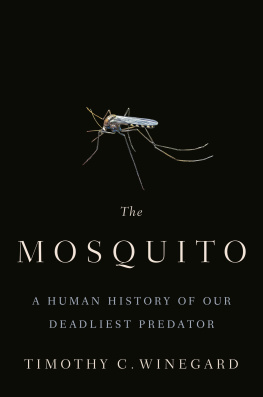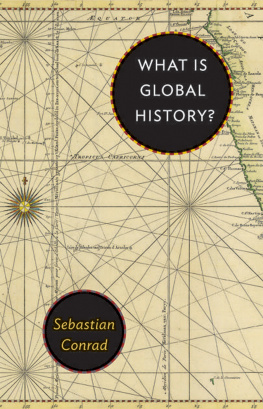Copyright Noel Cowen 2001
The right of Noel Cowen to be identified as author of this work has been asserted in accordance with the Copyright, Designs and Patents Act 1988.
First published in 2001 by Polity Press in association with Blackwell Publishers Ltd
Editorial office:
Polity Press
65 Bridge Street
Cambridge CB2 1UR, UK
Marketing and production:
Blackwell Publishers Ltd
108 Cowley Road
Oxford OX4 1JF, UK
Published in the USA by
Blackwell Publishers Inc.
350 Main Street
Malden, MA 02148, USA
All rights reserved. Except for the quotation of short passages for the purposes of criticism and review, no part of this publication may be reproduced, stored in a retrieval system, or transmitted, in any form or by any means, electronic, mechanical, photocopying, recording or otherwise, without the prior permission of the publisher.
Except in the United States of America, this book is sold subject to the condition that it shall not, by way of trade or otherwise, be lent, re-sold, hired out, or otherwise circulated without the publishers prior consent in any form of binding or cover other than that in which it is published and without a similar condition including this condition being imposed on the subsequent purchaser.
ISBN 0-7456-2805-2
ISBN 0-7456-2806-0 (pbk)
ISBN 978-0-7456-6605-1 (epub)
A catalogue record for this book is available from the British Library and has been applied for from the Library of Congress.
Acknowledgements
My first and heartfelt acknowledgement is to my son Robin whose belief in this project has been constant for twenty-five years. From the international sixth-form Atlantic College in Wales he won a Fairbridge scholarship to the University of Western Australia to study philosophy, politics and history. Searching through the current literature on the philosophy of history, Robin felt bound to report: The central goal to afford a total explanatory account of the past is now very unsympathetically regarded. But he added his opinion that my theory was eminently plausible. His subsequent commitment was to the foundation of sound education in primary schools in Australia and England. But his interest in my plausible enterprise never wavered, and in correspondence and recorded discussion he injected something of the intellectual rigour of his M.A. thesis in philosophy into the narrative I was piecing together.
Born in the naval and military town of Chatham during one of the worst episodes of the Great War, as I grew to manhood I learned with mounting horror of the sheer wickedness of the Battle of the Somme. In my last years at school and as a young newspaper reporter I was increasingly aware of the new chapters of wickedness that threatened a return to global conflict. I registered as a conscientious objector at the onset of the Second World War, and in its aftermath I was recruited to a small team at the Ministry of Economic Affairs to help explain our economic plight. When the Ministry was merged into the Treasury I worked on problems of reconstruction in an emerging global context. I learnt about the stern economics of recurrent crisis and our dependence for survival on international political cooperation and the definition of common goals for war-ravaged nations. Stimulated by Toynbees A Study of History , but unconvinced by its core arguments, I sent him some criticisms and some thoughts of my own. In his reply he said the more of us have a go at it the better.
With this encouragement I began an extensive programme of reading which has never really ended. My plan was to eschew theory for the time being and search the works of specialist historians for detailed factual accounts of particular civilizations. My debt to them is enormous, not only for the knowledge and insight they have given me but also for the pleasures of wandering in their enchanted garden. The City of Westminster library responded with zeal to my growing lists of books, which they bought or borrowed when they were not available on their shelves. I welcomed the opportunity to move to the Ministry of Education and to profit, thereby, from the scholarly wisdom of H.M. Inspectors, one of whom in particular was seeking to arouse an interest in world history in the secondary schools. Teddy (E.E.Y.) Hales had published a number of historical works and was currently working on curricular ideas based on discussions with international educationists. We discussed the relevance of this background to my studies.
In an article I published around that time I first spelt out the global dimensions of my work, referring to the global view which was discernible in the unfolding of the regional sequences. After discussing the ends pursued in turn by man the wanderer, man the settler, man the conqueror and man the worshipper, I turned to the global situation taking shape and asked if there were any signs of a common direction emerging. In discussions with Robin I undertook several reworkings of my material and in the 1980s I concluded a comparative treatment of classical and modern civilizations with a summary of increasing global trends against the background of technological and financial innovation. Drawing the strands together, I wrote that the essential conditions for a sustainable civilisation of global dimensions in the future would be, on the analogy of the past, the material means to sustain its population, a system of government to give security and stability, and a supportive ethos widely enough recognised and upheld.
I had by then retired from government service and could spend more time on research, notably in Exeter University library and in the university library in Perth, Western Australia. Shortly afterwards I became aware of an explosion of interest in world history in the United States. I joined the ten-year-old World History Association, studied the Journal of World History, and visited the States to talk about my work. I was well received and in 1996 I was invited to address the final plenary session of the annual international WHA conference. Although illness prevented me from attending the conference, this American connection had several further consequences. The first was that I wrote an account of modern American civilization compared with modern Japanese civilization, showing correspondences between both and with the early modern and classical civilizations. The second consequence was an interest in what was becoming known as global history, which appeared to be the history of the concept of globalization. Applying this notion to my account of civilization I wrote a new shorter study entitled Civilisation and Globalisation. The third consequence was that I attended the 1997 Anglo-American Conference of Historians on European Peoples and the Non-European World. Encouraged by the conference document, which called for guidelines and big pictures of world history, I sent a copy of the synopsis of my book to the organizer, Professor Patrick K. OBrien, the retiring director of the London Institute of Historical Research. In his reply he thought I had lighted on two organising or ordering concepts.
In 1999 I realized the relevance of my studies to what Professor David Held and his colleagues were describing as the globalization debate and I sent a copy of my book to Polity Press. The prompt and positive response I received from David Held and the suggestions subsequently forthcoming from Polity readers resulted in substantial revisions and additions. The book now published is the product of half a century of study, welcomed by Toynbee in its early stages, supported by my son Robin throughout, and given recognition at the end by David Held and Polity. My wife Helen has been a sympathetic and long-suffering participant in this obsessive enterprise and to her this final outcome is gratefully dedicated.

